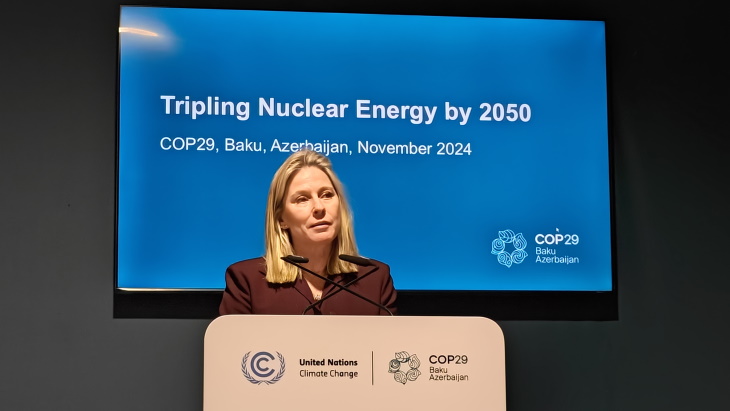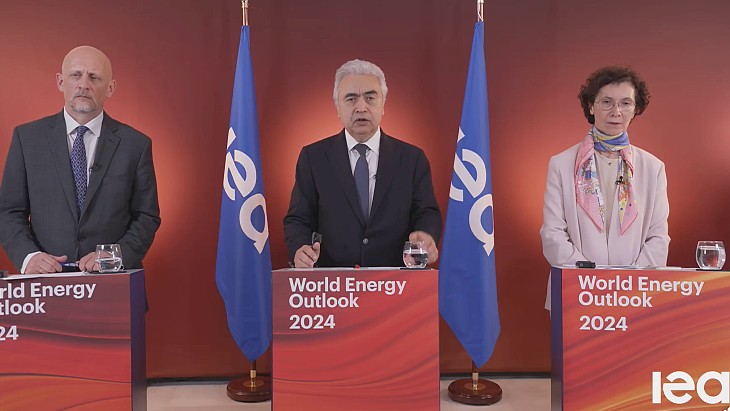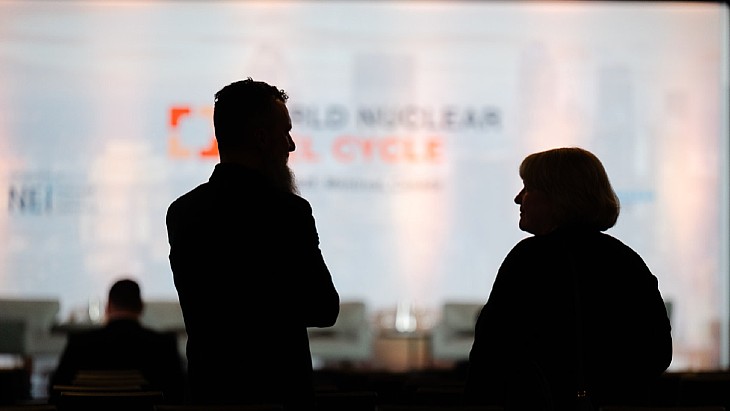Regulatory changes needed for new nuclear for maritime
.jpg)
The shipping industry consumes some 350 million tonnes of fossil fuel annually and accounts for about 3% of total worldwide carbon emissions. The industry has been mandated by the United Nations to reach net zero by 2050, the event - titled New Nuclear for Maritime and held during London International Shipping Week 2023 - was told.
"Fossil fuels still have a future supported by CCS (carbon capture and storage) and low speeds," Martin Stopford, executive director of MarEcon Ltd, said. However, he noted, "high energy costs are going to make capital intensive investments like nuclear reactors much more attractive".
In discussions some five years ago about decarbonising the shipping industry, the idea of using nuclear "was almost immediately dismissed and for the usual reasons: it was politically unacceptable, it was high-risk and it was too expensive. It didn't even really enter the debate", said Michael Parker, Chairman of Citigroup's Global Shipping, Logistics and Offshore business. "I think that balance has changed quite a bit as people have really become aware … that green fuels are less efficient versions of fossil fuels. They're economically less attractive."
Chris Hartnoll, CEO and MD of HICO Investment Group, said: "I think the starting point for us is that for new nuclear to really have the renaissance and real impact and full potential, I think we need to move towards small nuclear reactors ... we see a huge potential for maritime nuclear as a floating production site."
Floating nuclear power plants are seen as having future growth potential because they provide flexible location options, being placed at sea from where they can provide electricity or hydrogen or water desalination for onshore use.
Hartnoll said that nuclear electric ships, especially larger vessels, makes "much sense" and could be a step-change for the shipping industry. However, Hartnoll added, "I think the question is where the regulation will go. Will we be allowed to have nuclear ships pulling into different ports?"
Core Power's Director of Regulatory Development, Scott Edwards, said there needs to be a "clear, consistent and predictable set of rules and regulations" to make new nuclear for maritime a reality.
"Rules and regulations comes up as one of the potential barriers to the future, but actually what happens with the rules and regulations generally is they tend to catch up with new developments and innovation," said Core Power Chairman and CEO Mikal Bøe. "And for nuclear it's exactly the same thing."
He noted the International Maritime Organization's (IMO's) current safety regulations on nuclear maritime were developed in the 1970s and specifically relate to nuclear-propelled naval vessels. "It is the only internationally-recognised safety code for maritime nuclear," Bøe said.
"New nuclear for maritime requires agnosticism around the type of technologies we can use because we found that the technology that the IMO rules specifically refer to and regulates from the safety perspective, is in fact uninsurable," he said. "And if it's not insurable, it's a showstopper, because we can't bring it into ports."
Bøe noted that a comparison between floating nuclear power plants and nuclear-propelled ships "discovered there was close to 95% overlap between the two in terms of safety". He suggested IMO regulations are updated so as to "create that strong bond between nuclear safety and security and maritime safety and security ... that is a framework on which we can prototype and demonstrate already in the 2030s".
He added: "What we could then potentially achieve is dual-purpose floating nuclear power plants … a nuclear electric vessel entering into a waterway with a marine-appropriate nuclear technology – one that has, because of these new rules at the IMO, been allowed because it is agnostic and different technologies other than naval reactors. It now is insurable."
Katy Ware, Director of Maritime Safety and Standards at the UK Maritime & Coastguard Agency and Permanent Representative of the UK to the IMO, said she did not think the challenges of creating the necessary safety regulations "are insurmountable and can be done". She said the advantage with nuclear, unlike alternative fuels, is that it is a regulated industry, "there is a proven legislative structure for getting nuclear power plants up and running, so it is possible ... it can be done. It's complicated. We are not starting from scratch. It's going to take time. But we can do it."
In November 2020, a multinational team including Core Power, Southern Company, TerraPower and Orano USA applied to take part in cost-share risk reduction awards under the US Department of Energy's Advanced Reactor Demonstration Programme to build a proof-of-concept for a medium-scale commercial-grade marine reactor based on molten salt reactor technology.
"We think that sometime around 2032 to 2035, we should be able to demonstrate the first one," Bøe said.

_99697.jpg)








_50521.jpg)

